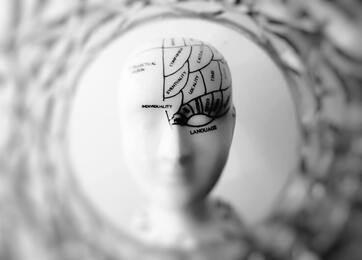|
BY: DILARA HACIOGULLARI Hi! My name is Fatma Dilara Haciogullari. I’m currently a high school sophomore who is passionate about research, biology, and cybersecurity. I cherish learning new things and sharing my knowledge with others.  The COVID-19 pandemic has taken, and continues to take, the lives of many around the globe. Some manage to survive this pandemic; however, new research is suggesting that there may be long-term neurologic consequences to surviving the virus. Patients that test positive for COVID-19 exhibit some of the following conditions related to the brain: confusion, loss of consciousness, seizures, stroke, loss of smell and taste, headaches, trouble focusing, and behavioral changes (Collins). The blood-clotting system in these patients is highly abnormal in that many develop blood clots. Blood clots pose a high risk to patients as clots can block or narrow arteries leading to the brain, thereby also increasing the risk of stroke. Strokes, especially silent ones, are common within patients, especially those over 70, and they are a risk factor for both dementia and larger strokes. Silent strokes usually affect the wiring between brain cells that allow them to communicate with different parts of the brain. This wiring is vital for focus, and attention loss will occur when they are harmed (Budson). Getting in enough oxygen through damaged lungs also makes patients vulnerable to hypoxic brain damage. According to a study done by Zhou et al., this damage continues to affect patients even after they recover from the virus. This study investigated various aspects of cognitive function in 29 individuals who have recovered from COVID-19. In sustained attention, the capacity to attend to essential information, they found a recurring deficiency (Zhou et al.). The explanation for this, Zhou et al. concluded, could have been related to the inflammatory mechanism. This is, nevertheless, not to reject the possibility that lack of oxygen or silent stroke contributes to the long-term, detrimental effect on the neurological functioning of recovered COVID-19 patients. Works Cited Collins, Francis. "Taking a Closer Look at COVID-19's Effects on the Brain." National Institutes of Health. U.S. Department of Health and Human Services, 26 Jan. 2021. Web.
Budson, Andrew E., MD. "The Hidden Long-term Cognitive Effects of COVID-19." Harvard Health Publishing. Harvard Medical School, 08 Oct. 2020. Web. Zhou, H.; Lu, S.; Chen, J.; Wei, N.; Wang, D.; Lyu, H.; Shi, C.; Hu, S. The Landscape of Cognitive Function in Recovered COVID-19 Patients. Journal of Psychiatric Research 2020, 129, 98–102.
0 Comments
|
Quest Student Research InstituteOn Science, Computation, Medicine, and Academic Success Archives
January 2022
|

 RSS Feed
RSS Feed